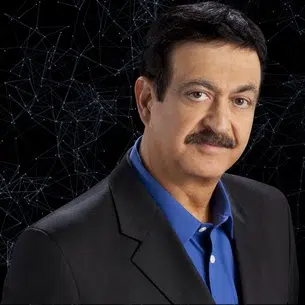INDIANAPOLIS — Several Indiana civil rights activists say they’re disappointed negotiators in Congress have ended talks for a police reform bill.
The George Floyd Justice in Policing Act passed the House earlier this year, but lawmakers couldn’t reach an agreement to get it through the Senate.
“We had high hopes that there would be some meaningful legislation coming out of Washington,” said Barbara Bolling-Williams, president of the Indiana State Conference NAACP.
Bolling-Williams said she’s “disappointed” federal lawmakers have failed to reach a deal on a police reform bill.
The George Floyd Justice in Policing Act would have banned chokeholds, ended no-knock warrants in federal drug investigations and created a national police misconduct database.
Lawmakers couldn’t make progress on sticking points like qualified immunity.
“Reform is still needed,” Bolling-Williams said. “Everything that’s happened so far has been good steps, first steps forward.”
Earlier this year, Indiana passed its own police reform law, which bans chokeholds in some situations, mandates de-escalation training for officers and lowers the burden of proof for the state law enforcement training board to decertify an officer for misconduct.
Sen. Mike Braun (R-Indiana) said he believes it should be up to the states to create these kinds of laws.
“We did it here in Indiana with all the police agencies on board with doing common sense stuff, and that should be done at the state level, not the national level,” Braun said.
Others say they would still like to see federal lawmakers pass a police reform law, and some believe they should look to Indiana’s law as a model.
“I think we’re really trying to address the issues, and it’s being done in a bipartisan way,” said Rev. Charles Harrison, board president for the Indianapolis Ten Point Coalition. “I just think Washington has to do it in a bipartisan way.”
Some say they hope to see Indiana legislators expand upon that law next session as activists look to state and local governments to pass reform.
“I know other states and NAACP branches are moving in that direction trying to get qualified immunity taken care of at the state level,” said Roderick Bohannan, chairperson of the legal redress committee for the Indianapolis Branch NAACP.
“It will continue to be by city by city, county by county, state by state,” he added.
In a statement, President Joe Biden said he’s still hoping Congress will be able to pass a police reform bill at some point and isn’t ruling out taking executive action.
We’ve reached out to other members of our congressional delegation to get their thoughts on the negotiations ending.
I am disappointed that the Senate negotiations on police reform have stalled. Hoosiers know that this an extremely important priority in our communities and across America, and enacting legislation will save countless lives. The George Floyd Justice in Policing Act, which the House has passed twice, is a common-sense bill that helps hold police accountable but also empowers them to do their jobs better. It’s unfortunate that blind partisanship has prevented many Republicans from giving our bill the consideration it deserves. We must press forward on this policy change as soon as possible, and in honor of all the lives lost to police misconduct.
Congressman André Carson (D-Indiana)
I stand in support of our law enforcement, and I’m committed to supporting good policies that provide resources for more training, community services and increased pay. Supporting our police should be a bipartisan issue. While I am disappointed these discussions have halted, our state legislatures also have the capacity to lead on these reforms. I’m proud to say the Indiana General Assembly passed legislation earlier this year that was met with incredible support from both Republicans and Democrats.
Congressman Jim Baird (R-Indiana)
Hoosier officers regularly reiterate to me their commitment to protecting our communities and upholding our laws; they want good policing everywhere and are optimistic that thoughtful reform can provide resources they need to face the challenges they see daily. Politicians should put their partisan priorities aside and focus on serious solutions, which requires working with law enforcement officers who stand ready to contribute.
Rep. Trey Hollingsworth (R-Indiana)
I am committed to supporting those in the law enforcement community, ensuring they have the resources they need to properly carry out their jobs of keeping us safe. Our men and women in blue do thankless work and make great sacrifices – which why I am absolutely opposed to ending qualified immunity.
Rep. Greg Pence (R-Indiana)
“Our men and women in blue put their lives on the line each day to keep Hoosier communities safe and our streets secure. I support promoting transparency and accountability at all levels of law enforcement, while preserving the ability of our law enforcement officers to do their jobs and get home safely like those proposed in the JUSTICE Act,” said Congressman Bucshon. “It is unfortunate that Congressional Democrats have chosen to end criminal justice reform negotiations. Democrats refuse to drop their demands to eliminate qualified immunity for our men and women in law enforcement and are proving to everyone that they are not actually serious about passing real reforms.”
Congressman Larry Bucshon (R-Indiana)




